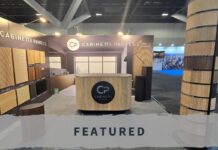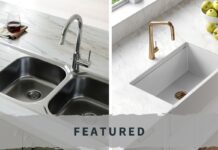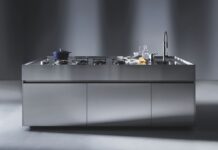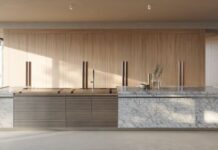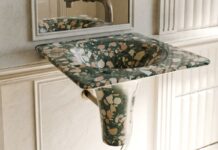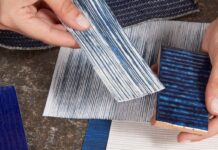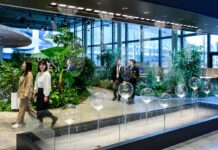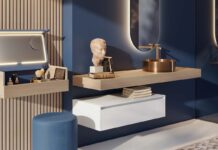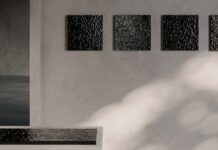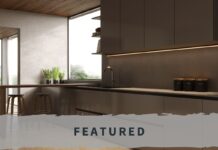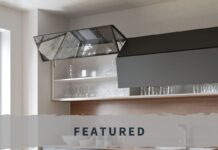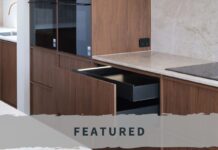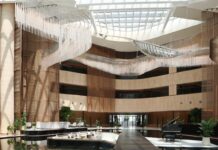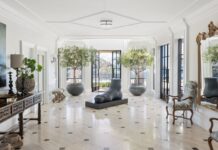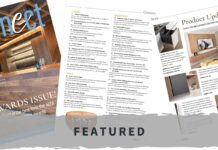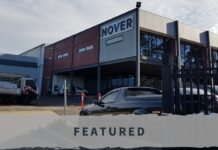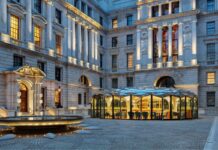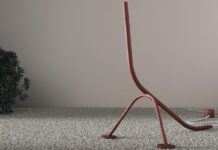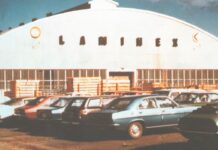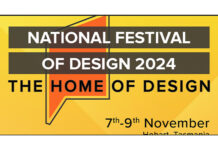The architecture and interior design studio AW², led by Reda Amalou and Stéphanie Ledoux, delivers four new cabins to complement the existing 25 cabins implanted over a 150-hectare site in the village of Chassey-lès-Montbozon in Franche-Comté, France.
The cabins were officially opened in June 2024 following four months of manufacture and assembly of the cabins at the MCF Bois workshop and seven weeks of preparation and assembly on site.
 Architecture and interior design studio AW² is known for employing a customised bioclimatic approach in symbiosis with the surrounding environment. This approach to sustainable architecture echoes the values and environmental principles of Coucoo Cabanes, a company that advocates a living biodiversity and a better interaction between humans and nature.
Architecture and interior design studio AW² is known for employing a customised bioclimatic approach in symbiosis with the surrounding environment. This approach to sustainable architecture echoes the values and environmental principles of Coucoo Cabanes, a company that advocates a living biodiversity and a better interaction between humans and nature.
 The four cabins on the Grands Lacs estate are the first of what will be a series of collaborations between the studio and Coucoo Cabanes. The new cabins are designed over three levels housed in a protective “envelope”; the cabin’s design is reminiscent of a bud just before it blossoms with the external structure designed to open up to reveal interior spaces that are sheltered yet open to the surrounding landscape.
The four cabins on the Grands Lacs estate are the first of what will be a series of collaborations between the studio and Coucoo Cabanes. The new cabins are designed over three levels housed in a protective “envelope”; the cabin’s design is reminiscent of a bud just before it blossoms with the external structure designed to open up to reveal interior spaces that are sheltered yet open to the surrounding landscape.
 The first level, raised on stilts, opens onto the view and the gentle breeze. This vast, protected terrace allows guests to live outside, sheltered from the sun and rain. The second level houses the bedroom. The open bay windows allow the space to be naturally ventilated, while enjoying the views. The third level features a Nordic bath. This is where guests can unwind, immersed in the water and the treetops. At this height, the views are breathtaking. Whether by oneself or accompanied, the terrace allows guests to soak up the views whilst reconnecting with the ever-present natural world.
The first level, raised on stilts, opens onto the view and the gentle breeze. This vast, protected terrace allows guests to live outside, sheltered from the sun and rain. The second level houses the bedroom. The open bay windows allow the space to be naturally ventilated, while enjoying the views. The third level features a Nordic bath. This is where guests can unwind, immersed in the water and the treetops. At this height, the views are breathtaking. Whether by oneself or accompanied, the terrace allows guests to soak up the views whilst reconnecting with the ever-present natural world.
 The AW²-designed cabins respect the existing biodiversity as they emerge from the trees on the periphery of the nature reserve. Whether open or closed, their facades – the two protective envelopes – offer unobstructed views of the forest and lakes.
The AW²-designed cabins respect the existing biodiversity as they emerge from the trees on the periphery of the nature reserve. Whether open or closed, their facades – the two protective envelopes – offer unobstructed views of the forest and lakes.
 The outer structure is either closed or perforated. It acts as a filter, providing shelter, framing views, protecting from the sun and wind, and creating a strong connection with the natural world in such close proximity.
The outer structure is either closed or perforated. It acts as a filter, providing shelter, framing views, protecting from the sun and wind, and creating a strong connection with the natural world in such close proximity.
 The wooden furniture has been specifically designed to blend in with the architecture of the cabin. Positioned in the centre, the bed also serves as a space divider in the bedroom. The lounge area is created by a simple curved bench and a coffee table. Opposite, guests can find the coffee and tea amenities. Towards the back of the cabin, screened by the headboard, the washbasin and dry toilet have been integrated.
The wooden furniture has been specifically designed to blend in with the architecture of the cabin. Positioned in the centre, the bed also serves as a space divider in the bedroom. The lounge area is created by a simple curved bench and a coffee table. Opposite, guests can find the coffee and tea amenities. Towards the back of the cabin, screened by the headboard, the washbasin and dry toilet have been integrated.
 Finally, the wardrobe and shelving unit complete the layout in the opposite corner. Thermal comfort, provided by the high-performance insulation of the envelope, is enhanced by the openings on the opposing facades. This allows cross-air circulation, further assisted by a fan positioned above the bed. The space is optimised, predominantly open plan, and offers a constant visual connection with the landscape outside.
Finally, the wardrobe and shelving unit complete the layout in the opposite corner. Thermal comfort, provided by the high-performance insulation of the envelope, is enhanced by the openings on the opposing facades. This allows cross-air circulation, further assisted by a fan positioned above the bed. The space is optimised, predominantly open plan, and offers a constant visual connection with the landscape outside.
 In this project, the choice of materials and construction methods accentuates the experience of total contact with nature. The location of each cabin is determined by the opportunities and vulnerabilities of the site. The aim is to protect the natural environment while creating the best possible experience for the guests.
In this project, the choice of materials and construction methods accentuates the experience of total contact with nature. The location of each cabin is determined by the opportunities and vulnerabilities of the site. The aim is to protect the natural environment while creating the best possible experience for the guests.
 The cabins were constructed by MCF Bois, a company specialised in timber framing, whose workshop is located just 75 minutes from the Grands Lacs site. The chosen type of wood was Douglas fir and the trees were felled less than 30km from the workshop. The cabins were prefabricated in the workshop, then transported to the site. This prefabrication process, together with the use of adapted lifting equipment, meant that the construction time on site was reduced (only four days per cabin) and the impact on the terrain was minimal, thereby helping to protect the site and its biodiversity.
The cabins were constructed by MCF Bois, a company specialised in timber framing, whose workshop is located just 75 minutes from the Grands Lacs site. The chosen type of wood was Douglas fir and the trees were felled less than 30km from the workshop. The cabins were prefabricated in the workshop, then transported to the site. This prefabrication process, together with the use of adapted lifting equipment, meant that the construction time on site was reduced (only four days per cabin) and the impact on the terrain was minimal, thereby helping to protect the site and its biodiversity.
The Coucoo Cabanes project supports the local economy, reduces its carbon footprint thanks to short transportation distances, and promotes the region’s traditional craftsmanship.
For more information visit aw2.com/en/
Photos: David Rosemberg, mikestravelbook


